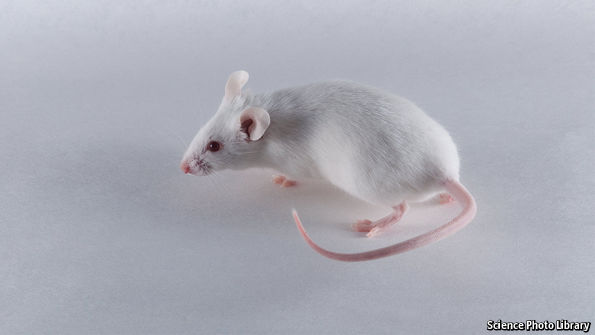Penicillin changes the behaviour of young mice

THE symbiosis between human beings and the bacteria dwelling in their guts is a delicate thing. When it works well, both sides benefit. The bugs get a comfy home. The hosts get help with their digestion, making more food available than otherwise would be. If relations are upset, though, bad consequences may flow. Both obesity and malnutrition can be exacerbated by the wrong gut bacteria. Illnesses such as asthma and eczema are linked to a lack of certain bugs from an infant’s intestines. And there is evidence, from experiments on mice, that an absence of gut flora affects the development of the brain. Such absence weakens the blood-brain barrier, which normally helps to keep foreign material out of that organ. It also seems to make animals less sociable than would otherwise be expected.
The experiments which show these brain and behavioural changes have, though, either been done on mice raised in sterile conditions or on ones that have had their alimentary bacterial ecosystems “nuked” with antibiotics in high dose—far higher, pro rata, than would be administered to a human for medical reasons. The next stage is to test whether anything similar happens to mice fed…Continue reading
Source: Economist




